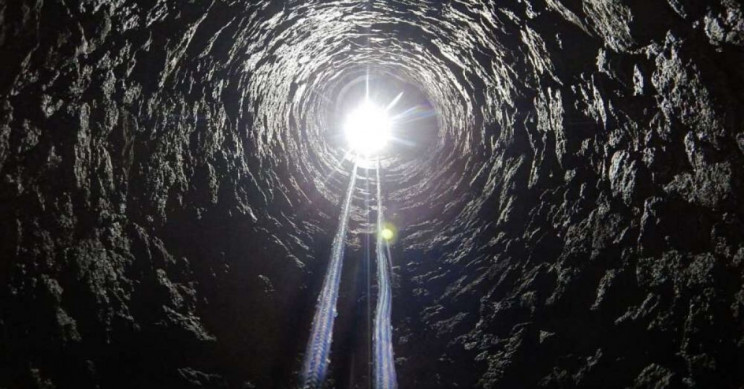The U.S. stormwater sector will soon benefit from a centralized approach to infrastructure research and development thanks to $3 million in newly appropriated federal funding.
As part of the 2023 Consolidated Appropriations Act signed into law on Dec. 29, 2022, legislators provided $10.1 billion in funding for the U.S. Environmental Protection Agency (EPA) — nearly $600 million more than they received for the previous fiscal year. Much of that additional funding will enable EPA to carry out new programs authorized in the 2021 Infrastructure Investment and Jobs Act (IIJA). Among these provisions, the IIJA tasks EPA with designating between three and five Centers of Excellence for Stormwater Infrastructure Technologies (CESITs). While the latest round of appropriations did not fund every stormwater program authorized in the IIJA, the new influx will enable EPA to begin the process of identifying CESIT candidates.
The Water Environment Federation (WEF; Alexandria, Virginia), in cooperation with the National Municipal Stormwater Alliance (NMSA; Alexandria, Virginia), had frequently called for the establishment of centers of excellence for stormwater in its annual Stormwater Policy Recommendations to Congress document.
“On behalf of WEF and NMSA, we thank Congress for creating and funding the new CESIT program,” said Walt Marlowe, WEF Executive Director. “We will now work with the U.S. Environmental Protection Agency and stakeholders to ensure that the CESITs and other federal stormwater resources help communities address their stormwater management needs.”
Excellence in Infrastructure Innovation
The $3 million allocation to the CESIT initiative, although short of the $5 million provisioned in the IIJA for the 2023 fiscal year, will support a forthcoming EPA grant program focused on identifying universities and nonprofit organizations to serve as CESITs.
According to IIJA language, successful CESIT applicants will “have demonstrated excellence in researching and developing new and emerging stormwater technologies.” For nonprofit organizations, water management must be a core focus of their stated missions. The measure also directs EPA to select CESITs that represent a range of different geographical regions and contexts.

Once selected, CESITs will work alongside each other as well as with governments, utilities, and other universities and nonprofit groups to coordinate specific types of research into stormwater infrastructure. These include, for example, new ways to prevent combined sewer overflows (CSOs), improvement of runoff water quality, identifying alternative approaches to funding and financing, and highlighting opportunities to align stormwater management priorities with those of other environmental, social, or economic programs.
A key CESIT function will be to analyze, assess, and benchmark the efficacy of new types of stormwater infrastructure against other alternatives. Findings from these ongoing inquiries will be publicly available online in a platform to be cooperatively developed and managed by the CESITs. Additionally, they will make recommendations to the federal government about future investments in the U.S. stormwater sector and provide technical assistance on optimizing stormwater infrastructure to governments and utilities who request it, IIJA language stipulates.
“The stormwater sector is extremely data-poor, especially regarding the performance of new and emerging technologies,” said Seth Brown, Executive Director of the National Municipal Stormwater Alliance. “These centers have the potential to bridge the gap between research and application in our sector through support of technology-focused initiatives.”
Winners and Losers in FY2023
In addition to funding the CESIT program, the appropriations package for fiscal year 2023 also provides financial support for various other stormwater efforts authorized in the IIJA. Several IIJA programs, however, did not receive appropriations for the coming year.
EPA’s Water Infrastructure Finance and Innovation Act (WIFIA) program, which provides long-term, low-cost loans to help subsidize regional water, wastewater, and stormwater infrastructure projects, received $68 million in appropriations. This amount significantly exceeds the $50 million in annual funding allocated to the program through the IIJA.
EPA’s new Sewer Overflow and Stormwater Reuse Municipal Grants program, although earmarked by the IIJA for $280 million in appropriations for 2023, will receive $50 million in startup funding. The new program will award grants to infrastructure projects targeting CSOs as well as runoff capture and use.
Other IIJA-backed stormwater programs did not receive funding for fiscal year 2023, such as:
- a new competitive grant program that would support water, wastewater, and stormwater reuse projects, approved in the IIJA to receive $25 million per year;
- a resilience and sustainability-focused grant program, also stipulated in the IIJA to receive $25 million per year, which is no longer applicable to stormwater projects; and
- a $10 million-per-year grant program to support municipal stormwater infrastructure planning and implementation, which went unfunded.
WEF and NMSA will continue to advocate for these and other programs that aim to advance the U.S. stormwater sector in hopes that they will receive funding during the fiscal year 2024 appropriations process. To participate, register to attend the 2023 National Water Policy Fly-In, which will take place April 25-26 in Washington, D.C. During this annual event, co-hosted by WEF, the National Association of Clean Water Agencies (Washington, D.C.), the WateReuse Association (Alexandria, Virginia), and the Water Research Foundation (Alexandria, Virginia), water professionals meet with legislative staff to discuss water-sector policy priorities.
Top image courtesy of Francine Sreca/Pixabay

ABOUT THE AUTHOR
Justin Jacques is editor of Stormwater Report and a staff member of the Water Environment Federation (WEF). In addition to writing for WEF’s online publications, he also contributes to Water Environment & Technology magazine. Contact him at jjacques@wef.org.





